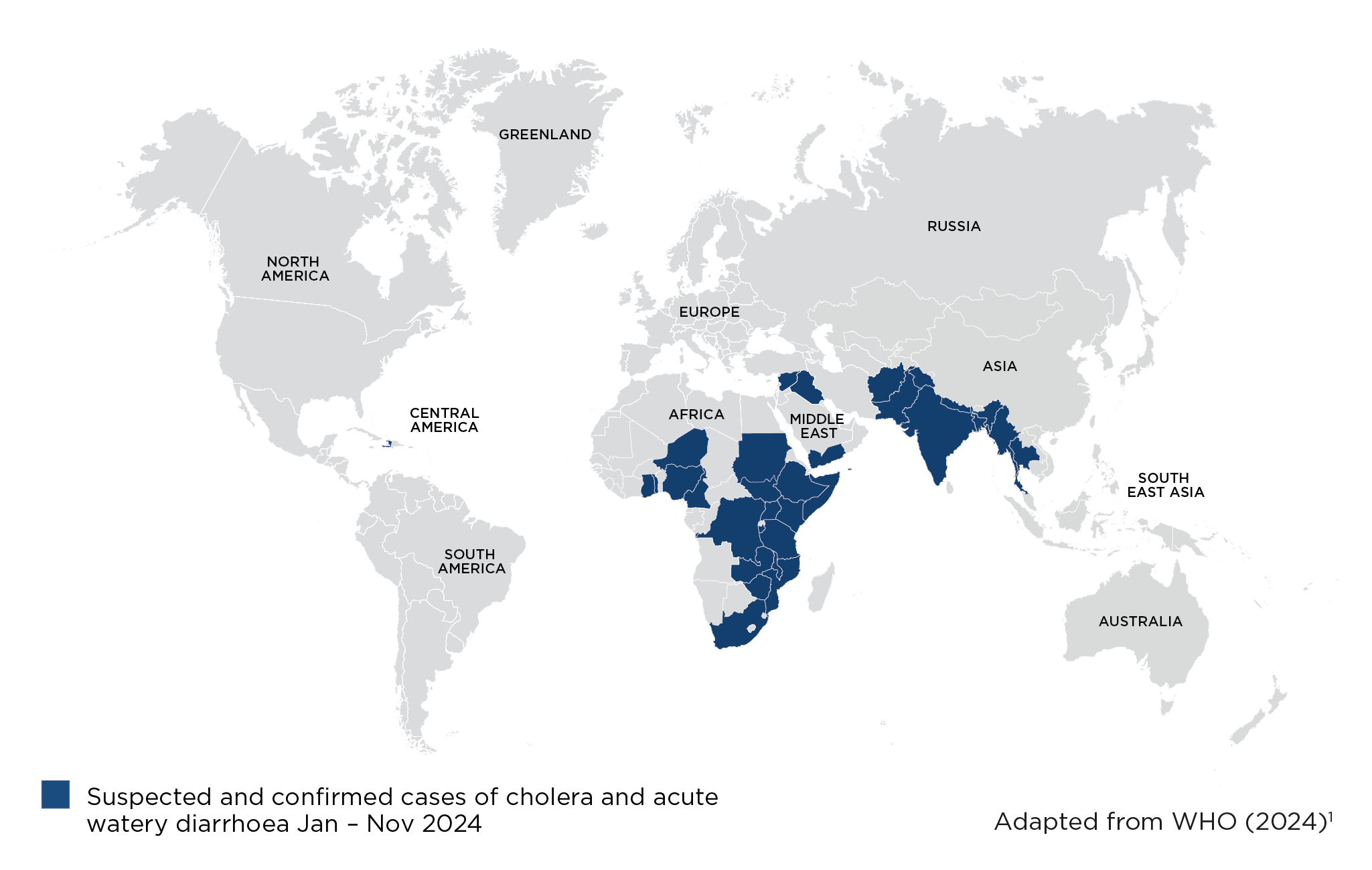It is estimated that up to 4.0 million cholera cases occur worldwide every year. Cholera can kill within hours if untreated.2
Disease video
Risk areas for Cholera

FAQs
-
Key fact
-
How do you get cholera?
Mainly from drinking unclean water or eating contaminated food containing the bacteria which cause cholera.3
-
Which countries are affected by cholera?
Cholera is common in a number of countries across Africa and Asia but has also been reported in other countries where people have returned ill after travelling (see map).1,3,4 Outbreaks of the disease can also occur in countries where cholera was not previously common.2
-
What are the symptoms of cholera?
Most people will not develop any symptoms, although they can still pass on the infection. Those who do develop symptoms can start to experience mild-moderate watery diarrhoea between 12 hours and 5 days after infection.2
-
How serious is cholera?
Cholera can lead to severe watery diarrhoea and dehydration which can be fatal if not treated promptly.2 Treatment may involve oral rehydration solution, additional fluids or even antibiotics depending on the severity of illness.2
-
Can I prevent getting cholera?
You can take the following precautions to help reduce your risk of infection:
- Visit your nearest convenient pharmacy or specialist travel health clinic for a risk assessment before your trip
- Avoid eating raw or uncooked fruit and vegetables that you haven’t prepared yourself. Use bottled or boiled water for washing food3
- Avoid eating shellfish and seafood3
- Avoid ice and ice creams3
- Use boiled or bottled water for drinking and brushing your teeth3
- Wash your hands frequently with soap and water, especially before eating and after using the toilet3
- Avoid unsanitary living conditions to reduce your risk of cholera infection4
Ready to get started? Check now for your nearest travel health clinic.
Get friendly advice from the UK's largest network of travel clinics*.
* This list is not exhaustive and other travel health providers are available.
References
- World Health Organization. Multi-country outbreak of cholera, External situation report #21. December 2024. Available online: https://www.who.int/publications/m/item/multi-country-outbreak-of-cholera–external-situation-report–21—18-december-2024. (Last accessed May 2025).
- World Health Organization. Factsheet. Cholera. December 2024. Available online: https://www.who.int/en/news-room/fact-sheets/detail/cholera# (Last accessed May 2025)
- NHS. Conditions A to Z. Cholera. June 2024. Available online: https://www.nhs.uk/conditions/cholera/ (Last accessed May 2025)
- NaTHNaC. Factsheets. Cholera. August 2024. Available online: https://travelhealthpro.org.uk/factsheet/56/cholera (Last accessed May 2025)
UK-BOTB-2500018 May 2025
